Why Donna Tartt's The Secret History Never Became a Movie
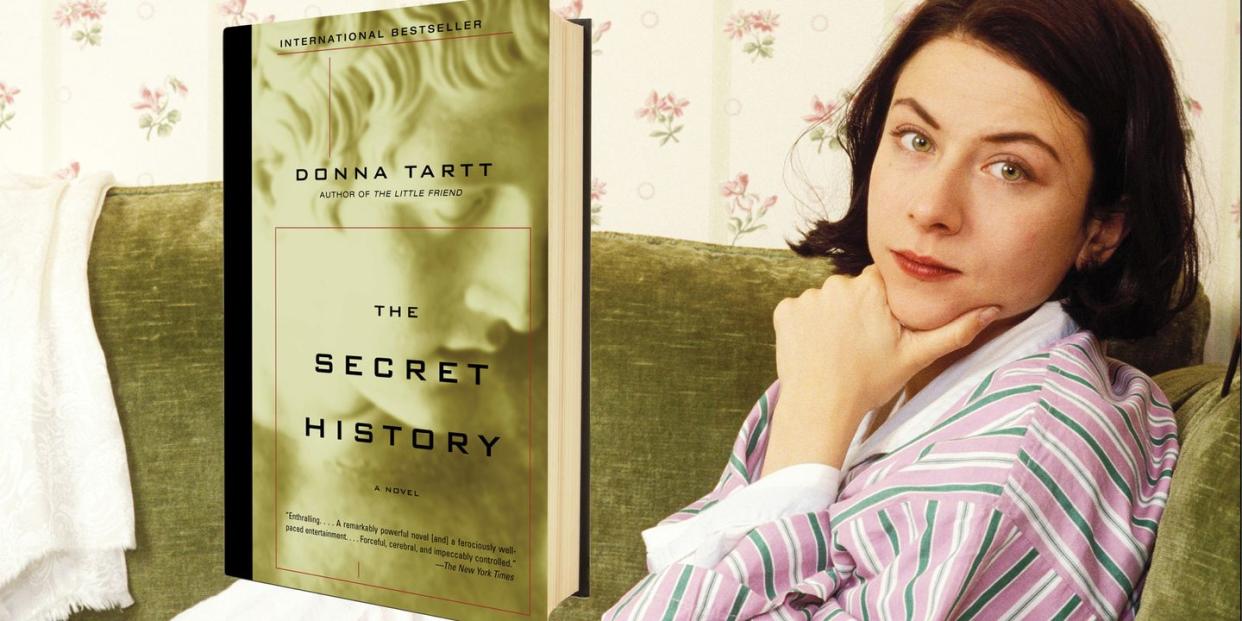
It isn't every book that becomes an instant literary sensation. Since its release, The Secret History has always been something special.
The 1992 phenomenon was the debut novel by Donna Tartt, then a fresh-faced young author who got her book deal while she was still a student at Bennington College, the Vermont liberal arts enclave where her classmates included Bret Easton Ellis, Jonathan Lethem, and Quintana Roo Dunne.
When she was still in her twenties, Tartt had been signed by the powerful literary agent Amanda Urban (known as Binky), who sold The Secret History to publisher Knopf for nearly half a million dollars. The book, which told the story of a group of college friends with a dark secret, was published to reviews that more than justified the price and the deafening buzz. A glowing New York Times review raved that it was “a ferociously well-paced entertainment," and Vanity Fair called it "a huge, mesmerizing, galloping read, pleasurably devoured."
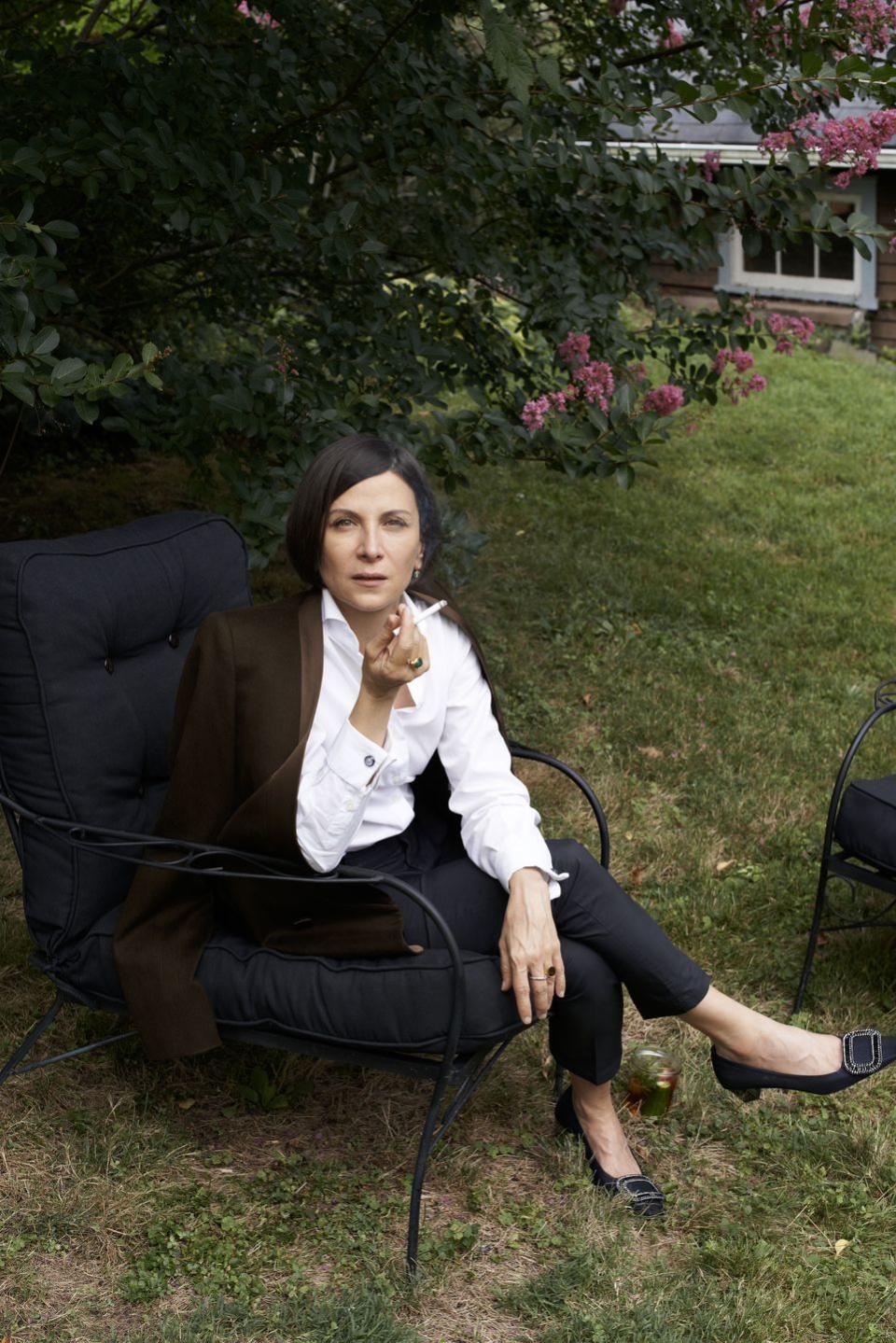
The book became a hit not only in erudite literary circles but with fans of commercial fiction as well, making it a bestseller and something of a perfect storm for a brilliant new voice and her publisher's well-oiled hype machine. In one article, the Times explained, "How the novel became such an all-round triumph is a case of the best of marketing and promotion meeting the best of writing, the complementing of strategy and talent.”
Considering the rabid audience the book had found and the unforgettable characters Tartt had created, the inevitable next step for such a hot property seemed like it would be a film deal.
However, even the most cinematic of books don’t always end up on the big screen. For every Little Women adaptation that gets made again and again, there’s a Confederacy of Dunces script stuck in a drawer. And for every novel that gets optioned by a streaming giant, there are only a select few that get actual release dates. Still, if networks and studios are turning to books for creative properties at a booming rate, then it hurts all the more when a cult favorite languishes in the development process.
Search the internet for lists of books that should have been made into films, and The Secret History, shows up on most of them. Entertainment Weekly called it a “perfect blend of high-end art and low-end drama that is so popular on our screens right now.” Those of us who believe that Tartt’s debut is her true masterpiece can find little solace in the fact that her first work to be adapted to the screen hits theaters this autumn.
Tartt’s 2014 Pulitzer-winning novel, The Goldfinch, is a Dickensian coming of age story set within the lush framework of the art world on the Upper East Side, and the film version, which just hit theaters, contains a cast full of stars including Nicole Kidman, Ansel Elgort, Sarah Paulson, and Jeffrey Wright. Adapted by Peter Straughan (Tinker Tailor Soldier Spy) and directed by John Crowley (Brooklyn). The rollout of The Goldfinch has been a big event, all fancy red carpets and Oscar speculation (though scathing reviews at the Toronto Film Festival make an Academy Awards sweep seem unlikely).
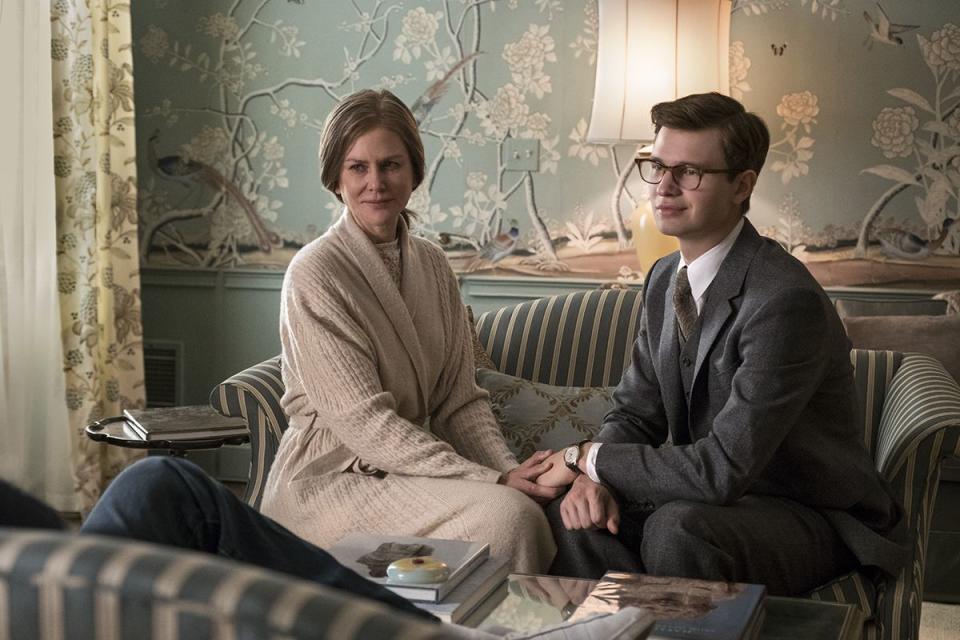
Alas, we Secret History lovers are left to reread our dog-eared paperbacks and wonder what went wrong.
Set in the 1980s at a liberal arts college in New England that’s a thinly veiled version of Bennington, The Secret History is an ode to fatal flaws and the beauty that can be found in terror, in which intellectual pursuits feel as romantic as spiritual ones. It’s the story of five students enrolled in an elite Ancient Greek major told from the perspective of the outsider who joins the clique and loses himself. “We don't like to admit it,” says their charismatic professor, “but the idea of losing control is one that fascinates controlled people such as ourselves more than almost anything.”
The Secret History is a novel of ideas with plenty of action—there’s sex, drugs, murder, and a Bacchanal gone horribly wrong, all of which are excellent ingredients for a blockbuster movie. Around the time of its release, literary adaptations including The Silence of the Lambs and Fried Green Tomatoes were thriving at the box office, so The Secret History seemed like the perfect candidate for a screen treatment.
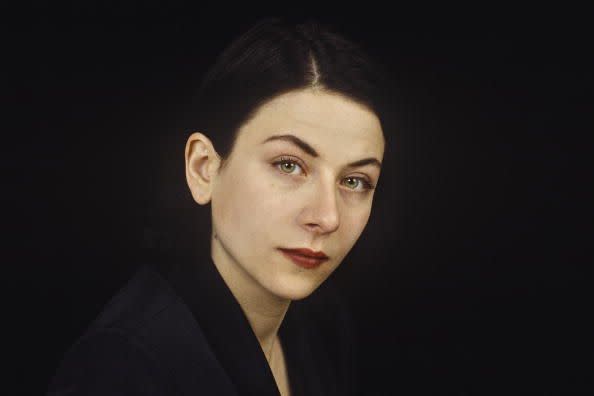
But even Tartt’s own camp seemed to understand that momentum at bookstores didn’t guarantee a novel would be made into a blockbuster. One of her agents told Variety in 2001, “If you don’t make the right deal for a book early on, it’s going to set you back a long time.” And that seems to be exactly what happened.
Director Alan J. Pakula snapped up film rights for Warner Brothers when The Secret History was published, with no less than Joan Didion and John Gregory Dunne signed on to write the screenplay and Scott Hicks set to direct. But Pakula died a few years later in a 1998 car crash, and his Secret History project never got off the ground.
There was more hope when, in concurrence with the publication of Tartt’s second novel, The Little Friend, in 2002, Gwyneth Paltrow and her brother Jake announced that they’d made a deal to develop The Secret History with Miramax.
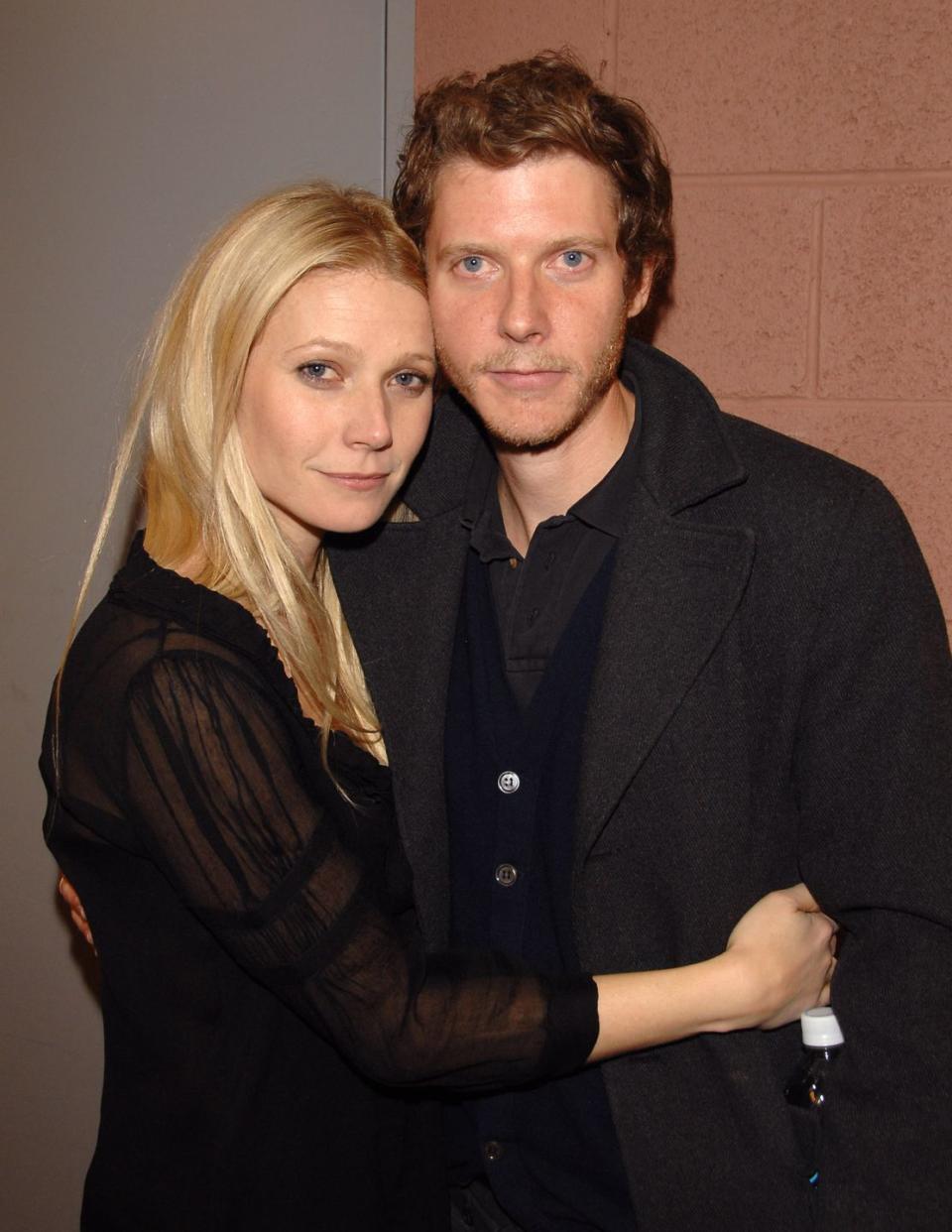
Those of us who spent hours contemplating their dream cast of the book loved the idea of Gwyneth (who’d act as a producer) playing Camilla Macaulay, the sole female member of the ancient Greek gang. Might Ethan Hawke or Leonardo DiCaprio round out the cast? We could dream.
This adaptation appeared to be on its way. Miramax honcho Harvey Weinstein (still an indie film hero at the time) said, “This is a fabulous project that I fell in love with as soon as I read it,” and Tartt’s then-literary agent trumpeted the progress being made, telling one reporter, "I know that a script is being worked on as we speak.”
However, when Bruce Paltrow, father of Jake and Gwyneth, died later that year, the siblings set the project aside, and tragically it was Bret Easton Ellis’s The Rules of Attraction that became the first thinly veiled novel-turned-film about Bennington to hit theaters.
Film rights usually last for a year with the possibility of a renewal, but every company—and in some cases every project—has a different policy. In this case, Miramax let film rights for The Secret History revert back to Tartt.
Timing is everything, according to one New York-based literary agent. In general, it’s difficult to make adaptations because so many different elements must line up at once. “It’s like herding cats,” she says. “The agents have to get a good script, the right actors, who are available to actually make it at the same time, the right studio with enough money, and then someone has to distribute it. There's no order in which that has to happen, except the obvious one.”
Still, as recently as 2013, there had still been talk of adapting The Secret History. This time Tartt’s former Bennington classmates Melissa Rosenberg (who worked on Twilight and Jessica Jones) and Bret Easton Ellis (to whom The Secret History was dedicated), hoped to develop her novel as a miniseries. That project fizzled out quickly, along with Elllis’s own adaptation of his novel Less Than Zero, which he’d been developing as a series for Hulu decades after Andrew McCarthy and James Spader starred in the film version.
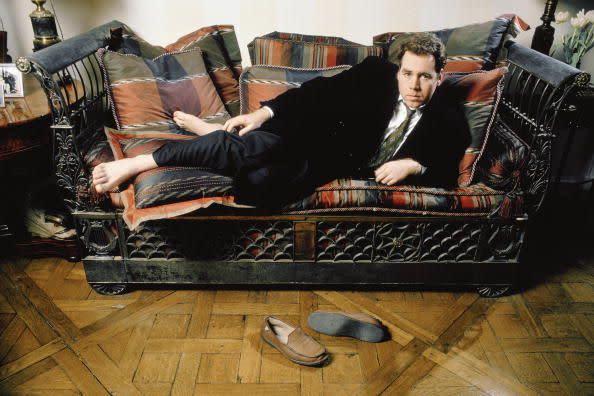
In the time since her debut made her a literary superstar, Tartt has more or less avoided the spotlight. While plenty of authors these days interact with fans directly on social media, Tartt—who is said to split her time between Manhattan and a farm in Virginia—has been hesitant to reach out to her audience, preferring to stay out of the public eye. In 2013, she told Town & Country, “I’m a bit of a lone wolf. I don’t give interviews or do publicity unless I have a book out—too distracting. My desk is where the real work happens.”
With The Goldfinch, which came out six years ago, Tartt again became a cultural phenomenon. But while this one did make it to the big screen, the six-year process of making that movie may have only served to confirm the author's suspicions about the filmmaking process.
The path to the film version of The Goldfinch was at least more straightforward. In 2014 Warner Brothers and Brett Ratner’s RatPac Entertainment picked up film rights, and in 2017 they teamed up with Amazon Studios to finance it.
Still, the process wasn't without its hiccups. According to "Page Six," Tartt ended up parting ways with her long-time agent Urban over the film—"she was unhappy with the deal made for the movie," a source told the column, which claimed Tartt wanted a chance to write the script or produce—despite a reported $3 million payday. The film, which premiered in early September at the Toronto International Film Festival, earned decidedly mixed reviews. One critic said "There might be no more boilerplate prestige-y prestige product at this year’s Toronto International Film Festival than The Goldfinch," and called the adaptation "stately and surefooted," while another dismissed it as "a morose and downbeat movie, too lost in the maze of its designer seriousness."
Will the release of The Goldfinch prompt another attempt to bring The Secret History to the big screen? We can only hope. Those familiar with Tartt's thinking say she's no longer interested in seeing her debut adapted at all, and rumors had her hesitant to sell the rights for The Goldfinch at first. She told this magazine when The Goldfinch was published that "once the book is out there it’s not really mine anymore, and my own idea isn’t any more valid than yours. And then I begin the long process of disengaging.” Sources tell T&C that she even refused to allow her current publisher, Little, Brown, to sell a movie tie-in edition of the novel, a move that will likely reduce sales.
Which is all to say that an adaptation of The Secret History remains a distant dream. We can still do casting in our heads—the 2019 version might have Timothee Chalamet as rich and handsome Frances, or John Boyega as outsider Richard—and hope that the planets align. But until then, part of the enduring mystique of The Secret History is that for Hollywood and an army of fans, it's the ultimate one that got away.
You Might Also Like

